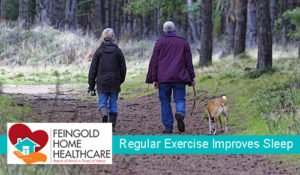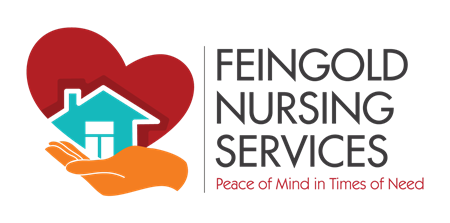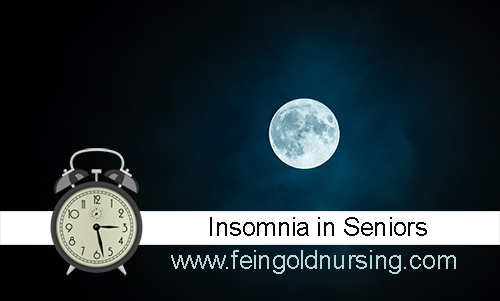Insomnia, the inability to get to sleep or stay asleep, is a disorder that affects as many as 1 in 4 adult Americans according to the National Institute for Health. Even more disturbing is that the debilitating condition may impact as many as 1 in 2 elderly people, possible due to various physical aches and pains that are more common as humans age. Everyone needs continuous, uninterrupted sleep in order to rest and refresh our muscles, mind, and vital organs.
When normal sleep patterns are disrupted, other symptoms can surface such as memory loss, irritability, and depression. Lack of sleep is not a minor issue and it shouldn’t be trivialized or simply treated with over-the-counter or prescription sleep aids. There should be a comprehensive assessment of the problem and a plan for treating it.
 Exercise: Getting up and out walking for only a half-hour every day can lead to much better sleep.
Exercise: Getting up and out walking for only a half-hour every day can lead to much better sleep.
A Regular Sleep Schedule: Studies show that irregular schedules increase insomnia.
Diet: Caffeine should be avoided for the three hours prior to bed time and healthy foods like raw vegetables help digestion and promote better sleep.
Alcohol: A few drinks before bed may help with falling asleep but invariable it doesn’t last long. Avoid alcohol.
Prescription medications: The problem with prescribed sleeping pills is that most elderly people are already taking several medications to treat other issues and there can be adverse reactions. Ask your doctor if natural sleep aids are ok to try.
Conclusion: Tell your doctor if you have trouble sleeping and if you don’t get results, ask for a referral to a sleep specialist.
Stress is the number one cause of sleep disorders. If you have an elderly friend or relative who can’t sleep it’s good to talk to them and ask if there is anything you can do to help them with their problems. Reassure them that they are going to be ok, and that they are loved. People don’t want to feel alone and that no one cares. Show them you care!


Recent Comments